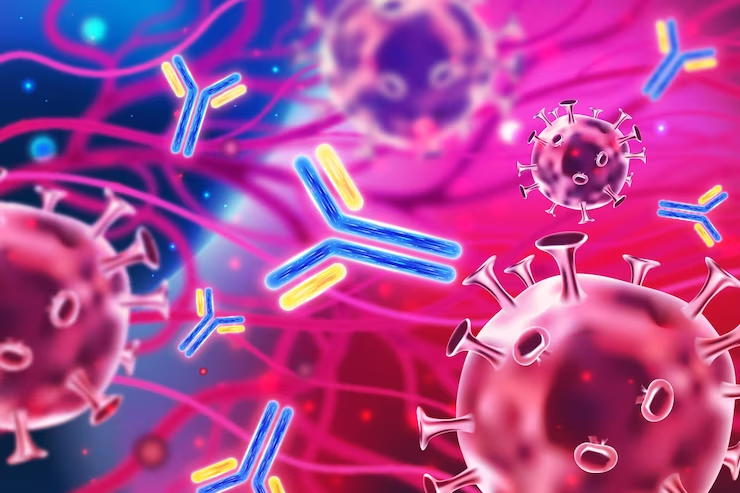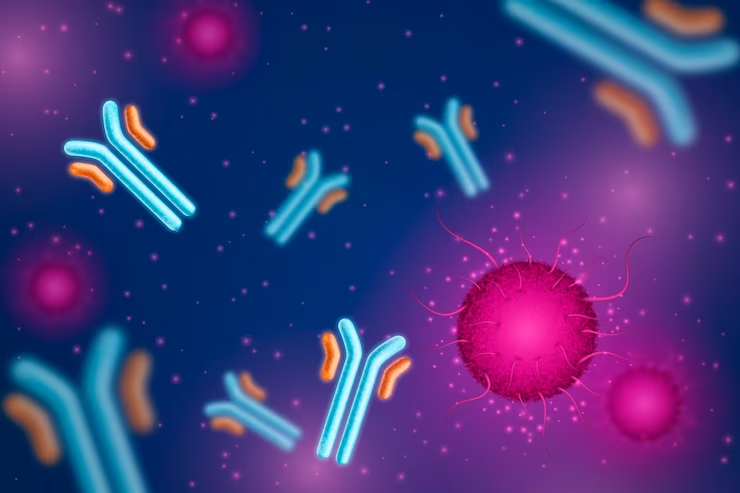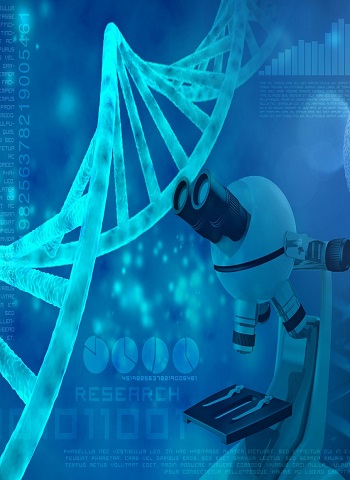Use of Monoclonal antibodies has served as a blessing for cancer patients. Monoclonal antibodies (mAbs) have revolutionized the field of biotechnology with their remarkable specificity and therapeutic potential. Developed through the fusion of B lymphocytes and immortalized myeloma cells, mAbs have emerged as essential tools in diagnostics, research, and therapy.
This blog will discuss about monoclonal antibodies. We will focus on the advancement as well as application in biotechnology.
Advancements in Monoclonal Antibodies
● Phage Display Technology
One of the significant advancements in monoclonal antibodies is the development of phage display technology. This ingenious technique has significantly contributed to the discovery and production of mAbs with exceptional binding affinities and specificities. By presenting potential binding partners on the surface of bacteriophages, scientists can rapidly and efficiently select high-affinity mAbs against specific targets.
This approach allows for the creation of custom antibodies tailored to different applications, from cancer treatment to infectious disease diagnosis. The ability to engineer mAbs with high specificity has opened up new possibilities for targeted therapies and precision medicine.
● Fully Human Monoclonal Antibodies
In the early days, monoclonal antibodies often originated from mouse or rat hybridomas. While these antibodies were effective, they posed a challenge when used in human patients due to potential immunogenic responses. However, with groundbreaking advancements in technology, fully human monoclonal antibodies are now produced using transgenic mice or yeast display systems.
These humanized mAbs have lower immunogenicity and enhanced efficacy, making them more suitable for therapeutic purposes. Fully human mAbs have not only improved the safety profile of therapeutic antibodies but have also demonstrated superior clinical outcomes in treating various diseases.
● Antibody Engineering
The field of antibody engineering has witnessed a tremendous leap forward, enabling the development of antibodies with enhanced properties. Through techniques like complementarity-determining region (CDR) grafting, antibody-drug conjugates (ADCs), and Fc region engineering, scientists have successfully modulated the pharmacokinetics, effector functions, and tissue penetration of mAbs. This has paved the way for the development of next-generation therapeutics with improved efficacy and reduced side effects.
By fine-tuning the antibody structure and function, researchers can now tailor mAbs for specific applications, making them more effective in targeting cancer cells, suppressing autoimmune responses, and combating infectious agents.
● High-Throughput Screening
Advancements in high-throughput screening have accelerated the discovery of monoclonal antibodies and streamlined the drug development process. With the ability to simultaneously analyze thousands of potential antibodies, scientists can now rapidly identify mAbs with desired characteristics.
This has considerably shortened the development timeline for new biologics and has expanded the scope of mAb-based therapeutics. The use of robotics and automation in screening assays has not only increased efficiency but has also allowed for more comprehensive exploration of the vast antibody repertoire.

Applications of Monoclonal Antibodies
● Cancer Therapy
Monoclonal antibodies have revolutionized cancer treatment by targeting specific antigens present on cancer cells. Therapies like rituximab and trastuzumab have shown remarkable success in treating lymphoma and HER2-positive breast cancer, respectively.
Additionally, immune checkpoint inhibitors, such as pembrolizumab and nivolumab, have been game-changers in immunotherapy, unleashing the body’s immune system to fight cancer. The use of mAbs in cancer therapy has significantly improved patient outcomes and survival rates, offering hope to countless individuals battling the disease.
● Autoimmune Diseases
The ability of mAbs to target specific components of the immune system has made them effective in treating autoimmune diseases. Medications like adalimumab and infliximab, which target tumor necrosis factor-alpha (TNF-α), have shown promising results in managing conditions like rheumatoid arthritis and Crohn’s disease.
By neutralizing the inflammatory response, mAbs provide relief to patients suffering from debilitating autoimmune conditions and improve their quality of life.
● Infectious Diseases
Monoclonal antibodies have emerged as potent tools in combating infectious diseases. During the COVID-19 pandemic, mAbs like casirivimab and imdevimab were developed to neutralize the SARS-CoV-2 virus and reduce disease severity.
Additionally, mAbs have been used in the prevention and treatment of viral infections like HIV and Ebola. The versatility of mAbs in targeting various pathogens holds great promise in controlling infectious disease outbreaks and preventing future pandemics.
● Diagnostics
In the field of diagnostics, monoclonal antibodies play a critical role in the detection of specific antigens or pathogens. Immunoassays, such as ELISA, utilize mAbs to accurately quantify proteins, hormones, and infectious agents in patient samples.
Moreover, mAbs labeled with fluorescent or radioactive tags enable the visualization of cellular structures in techniques like immunofluorescence and immunohistochemistry. The precision and sensitivity of mAbs in diagnostic applications have revolutionized disease detection and monitoring, leading to earlier intervention and improved patient outcomes.
Conclusion
Monoclonal antibodies have revolutionized biotechnology, driving advancements in various fields, from medicine to research and diagnostics. The development of phage display technology, fully human mAbs, antibody engineering, and high-throughput screening has enhanced the efficacy and versatility of these biologics.
Their applications in cancer therapy, autoimmune diseases, infectious diseases, and diagnostics have transformed patient care and provided new avenues for treatment. As researchers continue to explore and refine the potential of mAbs, we can expect further breakthroughs that will shape the future of biotechnology and medicine, ultimately leading to a healthier and more resilient global population.


